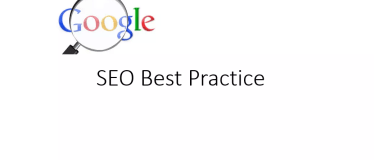SEO is the great equaliser of industry. From the big multi-nationals down to the local plumber, every organisation can play in the SEO pool. Larger businesses may have the resources, but the nature of SEO means that it's impossible to target every available channel for bringing in traffic. If a small business plays it smart, they can reap big rewards from a modest SEO marketing budget. Here are 14 different ways you can use SEO to bring in more business to your SME.
Research Your SEO Game Plan
Every successful SEO campaign starts with good research. You will be researching your competitors, audience, trends, keywords, and anything else that will give you an advantage in the search engine rankings.
Focus on your niche first by typing in a few broad keywords into Google and checking out the top results. You will gain a lot of new information about what is and isn't working, such as the type of content and the topics getting the most traction. The more you learn, the more straightforward the next steps will be.
Who Is Your Target Audience?
The preferences, habits, and problems you are trying to solve will determine your audience. When you learn how they think, what they need, and what they want, you will better understand how to develop your SEO strategy.
You can learn everything you need to know about your audience by asking a few key questions:
- Who are they?
- What content do they prefer?
- What do they use to access the content?
- What are their problems?
- What do they want from a product or service?
- How can you help them?
Having the answers to all of the above will help you move in the right direction with the type of content you create, the keywords to target, and the best narrative to inspire them to act and achieve their goals.
Use Free Tools
There are a ton of free tools that will help you nail down your SEO strategy. For instance, Google provides its free Keyword Planner for researching the most used search phrases.
Ubersuggest.com and Keyword.io also make more in-depth keyword research accessible to those on a budget. Their free versions are limited, but there are enough features to get started. Ubersuggest has monthly plans available for when you need the extra features, but you aren't locked into a long-term contract and will only pay for as long as you need it.
You also have free tools available to help you optimise your site, including Google Search Console and Google PageSpeed Insights. These tools can provide valuable data to fix any problems and provide an excellent user experience for visitors browsing your site.
Get Acquainted with Google Analytics and Google Search Console
Every online business and website owner should be using Google Analytics and Google Search Console because of the vital information they bring to the table.
Google Analytics provides detailed data about the number of visitors to your site, as well as where they arrive from, devices they are using, and their behaviour while they browse. There is a lot of insight hidden deep inside Google Analytics if you take the time to understand how to use it effectively.
Google Search Console delivers information about your site's performance in the search engines and highlights any issues that may be holding it back. You can also track the keywords that your site is ranking for, their positions, and how many visitors they bring to your site.
These two powerful tools are provided free by Google, but using them in your SEO strategy will be one of the best investments you can make.
Choose Low Competition Keywords with High Search Volume
Low competition keywords are phrases that are routinely entered into the search box, but there are not many businesses targeting them in their SEO campaigns.
If your keyword research brings up many large corporations and their content is well-optimised around those keywords, you don't have much chance at outranking them. You will need to look deeper to find keywords the big companies haven't discovered, and then create your campaign around those. Doing this will increase your chances of getting a first page ranking for keywords that still have decent search volume.
Set Realistic KPIs
Most companies set unrealistic targets when it comes to SEO. Traffic is one thing, but if it doesn't convert, it's not worth much. Instead of setting a goal of 1,000 new visitors a month, try setting your KPIs around ranking for more keywords, reducing your bounce rate, or increasing your pages per session. If you don't know what these mean, don't worry, your local SEO expert will be more than happy to explain them in detail.
Using these KPIs as a basis for your campaign will provide better insight into where you should be focusing your efforts and attracting the right sorts of visitors. Consider this, a conversion of 10% from 300 visitors is more money in the bank than a 0.5% conversion from 1000 visitors.
Spy on Your Competitors
The internet makes it simple for you to check up on what your competitors are doing in SEO. Use the same search phrases you would expect someone to use to find your business and visit the top results.
Examine their website, use the Google Keyword Tool to find out what keywords Google is ranking the site for, and check out their content. If something is working for your competitor, then it will work for your business. Your goal isn't to create a carbon copy of your competitor's SEO strategy, but to do it better.
Upskill Yourself and Your Team
A lot of your SEO success will boil down to the quality of your content and your website's performance. There's a lot to learn, but you won't have the time to develop every skill you need for SEO while also running your business.
Content creation, website development, keyword research, and diving into analytics aren't for everyone, but there are affordable options for outsourcing these tasks. Unless you or your staff have the time to learn everything needed, outsourcing is the most efficient method.
Get Your Technical SEO Sorted
Technical SEO refers to your site's performance in making it faster, easier to crawl and index, and ensuring that search engines can understand your content.
There are hundreds of ranking factors Google will use to determine where your site should rank, and most of them come down to providing a great user experience. You can use Google Search Control or Google PageSpeed to find out where your site needs improvement, but paid tools like AHrefs, SEM Rush, or Woorank used by an SEO expert will deliver the best results.
Use Meta Data to Your Advantage
Metadata primarily refers to the meta title and meta description in the HTML source code. These two HTML tags were heavily abused in the past, so Google does not give as much weight to them in ranking power as it once did.
Both the title and description show up as a clickable link in the search results, so what they can do for you is create a more clickable link.
A title and description that tells the searcher precisely what they can expect when they click through to your page will improve your click through rate (CTR). Of course, there's also the possibility that the crawl bots use this information as a way to index your site accurately.
Optimise Your Pages
If you have thrown up some content without much thought to SEO, then an SEO audit of your site should be the first item on your to-do list. An audit will give you an idea about what the search engines think of your site so far, and a list of things to fix so you can improve its performance.
A poorly optimised site with a trickle of traffic will see dramatic improvements once all the SEO audit boxes have been ticked. From there, you can start creating new content using sound SEO principles.
Optimise for Local SEO
Local SEO refers to attracting new customers from your company's sphere of influence. For instance, you won't get much business from searchers in North America if you operate your cake decorating business in Brisbane, Australia. Optimising for local SEO ensures you attract highly qualified leads from your surrounding area.
In general, local SEO will target local keywords. For instance, instead of targeting the keyword "best wedding cakes," you would include the name of your area, such as "best wedding cakes, Petrie."
You can also access another free service from Google called Google My Business. When you have an entry, your business will show up as a prominent display that details your opening hours, directions, phone numbers, customer reviews, and images.

Be on the Lookout for Content Creation Opportunities
There is virtually no limit to the content ideas you can use to build your brand through SEO. Every page or blog post you can add to your site provides more opportunities to rank for new keywords, while also adding extra value for your visitors.
You also have social media as a way to reach your audience with helpful, engaging content. See our article here on how you can find new ideas for creating great content.
Develop a Backlink Strategy
Backlinks have always been an influential ranking factor, and this is likely to continue for some time to come. However, not all backlinks are created equal, and some can even hurt your site. Develop a backlinking strategy for gaining high-quality backlinks from authority sites (sites that Google trusts).
Reaching out to sites that have given your competitors a backlink is an excellent way to score more for your business. However, you will want to ensure that your content is of higher quality. Otherwise, they won't have much incentive to give you a backlink.
In summing up, a winning SEO strategy is made up of many moving parts, but it will work to attract new leads and increase conversions on your site when you put it all together. SEO isn't difficult once you know what's needed, but finding the time can be challenging. If your SEO strategy is non-existent or needs fine-tuning, find out what you can do today with a free comprehensive SEO analysis of your site.













